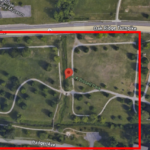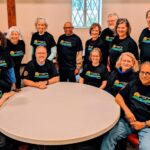Â
A climate science professor at Rutgers University will discuss how nuclear war could affect the climate and humanity during a virtual meeting in Oak Ridge on Tuesday, May 18.
Alan Robock will be the featured speaker at the virtual monthly meeting of Friends of Oak Ridge National Laboratory. The meeting will be open to the public, and it is scheduled to begin at noon Tuesday, May 18.
Robock is a distinguished professor of climate science in the Department of Environmental Sciences at Rutgers University in New Brunswick, New Jersey. His FORNL talk is titled “The Climatic and Humanitarian Impacts of Nuclear War.”
The Zoom link (meeting ID) can be found by clicking on the lecture title on the home page of the new FORNL website at www.fornl.org and then clicking the link just below the title on the talk’s descriptive page.
“The world as we know it could end any day as a result of an accidental nuclear war between the United States and Russia,” Robock said, describing his presentation in a press release. “The fires produced by attacks on cities and industrial areas would generate smoke that would blow around the world, persist for years, and block out sunlight, producing a nuclear winter.
“Because temperatures will plunge below freezing, crops would die and massive starvation could kill most of humanity. Even a nuclear war between new nuclear states, such as India and Pakistan, could produce climate change unprecedented in recorded human history and massive disruptions to the world’s food supply.”
In this talk, Robock will show climate and crop model simulations, as well as analogs that support this theory. He will discuss policy changes that can immediately reduce the chance of the scenarios he will describe and that can lead to the abolition of nuclear weapons.
“The myth of nuclear deterrence has allowed nuclear weapons to persist for too long,” he said. Robock will be joined in his talk by a representative from the Physicists Coalition for Nuclear Threat Reduction, the press release said.
As a result of international negotiations pushed by civil society led by the International Campaign to Abolish Nuclear Weapons (ICAN), which referenced Robock’s work, the United Nations passed the Treaty on the Prohibition of Nuclear Weapons on July 7, 2017. On December 10, 2017, ICAN accepted the Nobel Peace Prize “for its work to draw attention to the catastrophic humanitarian consequences of any use of nuclear weapons and for its groundbreaking efforts to achieve a treaty-based prohibition of such weapons.”
The treaty went into effect on January 22, 2021, the press release said. Robock will discuss the prospects that humankind might successfully pressure the United States and the other eight nuclear nations to sign this treaty.
Robock has three degrees, including a Ph.D. in meteorology from the University of Wisconsin and the Massachusetts Institute of Technology. He has published more than 400 articles on his research on climate change, including on climate intervention (also called geoengineering), impacts of volcanic eruptions on climate, and climatic effects of nuclear war, the press release said. He was a lead author of the Fifth Assessment Report of the Intergovernmental Panel on Climate Change, which was awarded the Nobel Peace Prize in 2007.









Leave a Reply